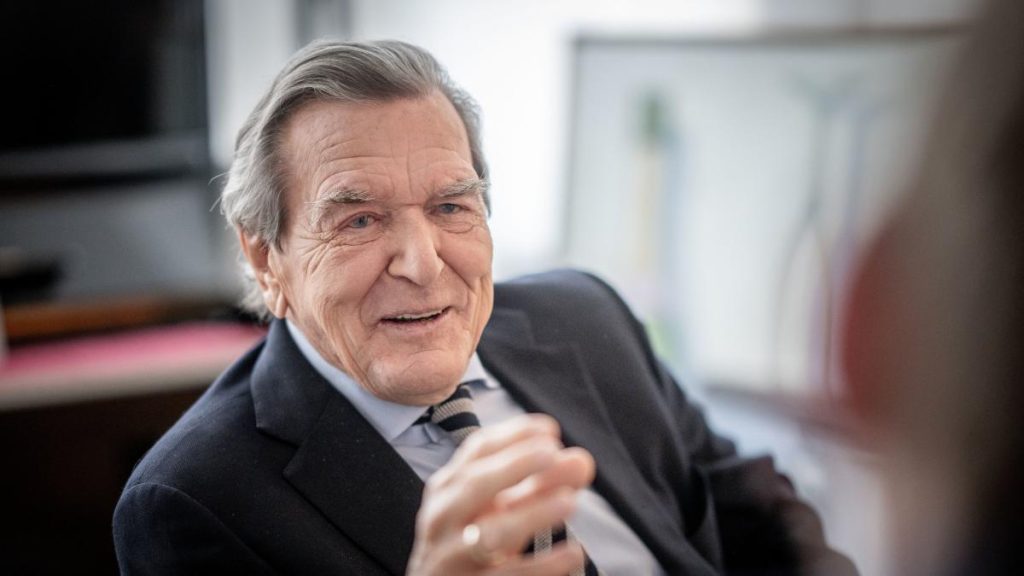The former Chancellor of Germany, Gerhard Schröder, who served from 1998 to 2005, will be turning 80 years old on Sunday. However, Kevin Kühnert, the General Secretary of the Social Democratic Party (SPD), has stated that he will not be congratulating Schröder on his birthday. This decision comes as a result of Schröder’s ongoing close relationship with Russian President Vladimir Putin, which Kühnert finds unacceptable. Schröder’s ties to Russian energy companies and his lobbying activities on their behalf have caused controversy within the SPD, with some local party branches attempting to have him expelled, although these attempts were unsuccessful.
Kühnert emphasized that the decision not to congratulate Schröder is more than just a simple disagreement, but rather a fundamental issue of principles. He highlighted Schröder’s failure to condemn Putin’s actions, including the annexation of Crimea and military intervention in Ukraine. Despite being a member of the same political party, Kühnert and Schröder appear to have irreconcilable differences on this matter. In response, Schröder dismissed Kühnert’s criticism, referring to him as “a poor fellow” and criticizing the current leadership of the SPD. He defended his actions, stating that some individuals still adhere to the principles of the rule of law. Schröder also expressed his belief that he is not isolated within the party, despite the criticism he faces.
The controversy surrounding Schröder’s ties to Russia stems from his roles in promoting Russian energy interests, particularly his involvement in the Nord Stream 1 and Nord Stream 2 gas pipelines. He has faced criticism for his close association with Putin and his support for Russian state-owned enterprises. Schröder’s tenure as Chairman of the Board of Directors of the state-owned Russian oil company Rosneft further added to concerns about his relationships with Russian entities. Despite the ongoing conflict in Ukraine and international condemnation, Schröder remains steadfast in his personal friendship with Putin, maintaining his loyalty and support for the Russian President despite the controversial nature of their association.
Kühnert defended the party’s decision not to include Schröder in the list of “great Social Democrats” on the party’s website, citing the former Chancellor’s actions in promoting activities that go against international law. He emphasized the importance of upholding principles and values within the party, especially when it comes to individuals in positions of influence. Schröder’s actions, particularly in his continued advocacy on behalf of Russian interests, have caused a rift within the SPD and raised questions about his legacy within the party. The ongoing tensions between Kühnert and Schröder highlight the broader debates within the party regarding foreign policy, ethics, and accountability.
As Gerhard Schröder celebrates his 80th birthday, the decision of the SPD leadership, particularly Kühnert, not to congratulate him underscores the divisions and disagreements within the party. The differing perspectives on Schröder’s actions and relationships with Russia reflect broader debates within German politics regarding foreign policy and ethical considerations. The controversy surrounding Schröder’s ties to Putin and Russian energy interests continues to be a point of contention within the SPD and raises questions about the party’s stance on international relations and principles. Despite the criticisms and tensions, Schröder remains unapologetic in his support for Putin, maintaining his controversial stance on Russian affairs.


